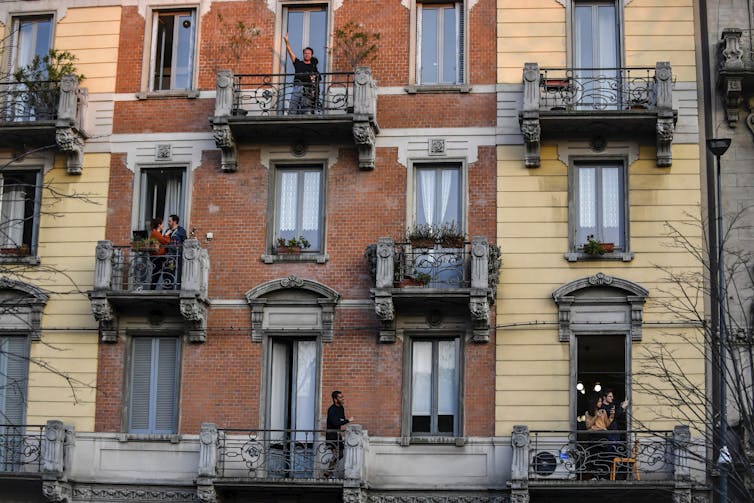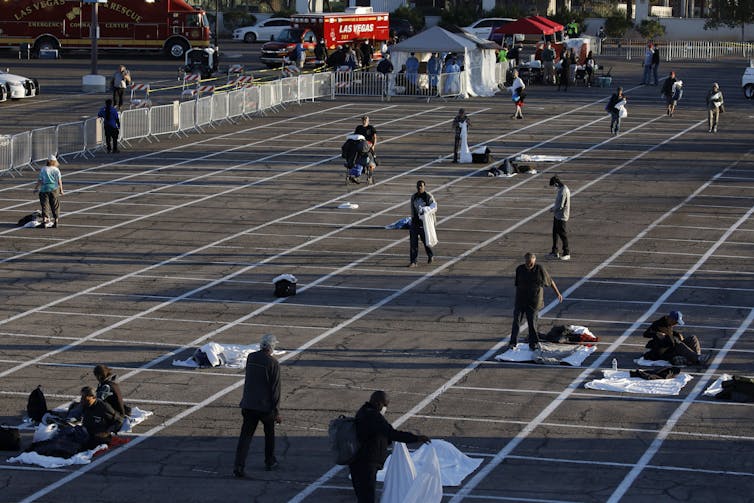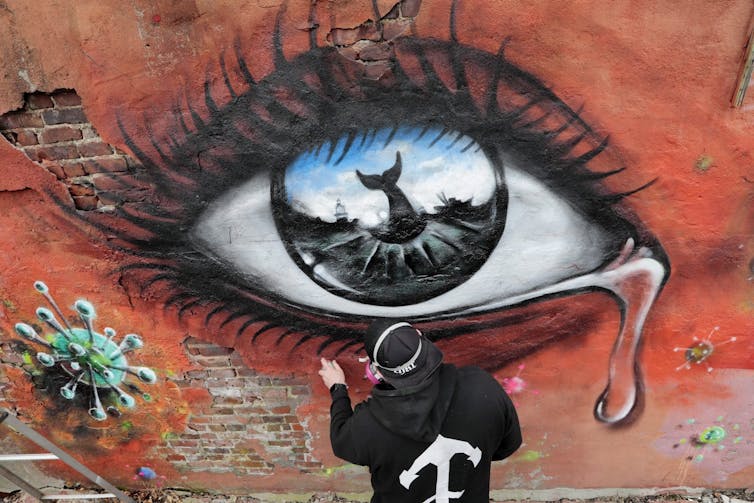What is solidarity? During coronavirus and always, it's more than 'we're all in this together': U of T expert

Published: April 20, 2020
Medical researchers around the world are involved in an unprecedented collaboration to test experimental treatments for COVID-19. When Tedros Adhanom Ghebreyesus, the director-general of the World Health Organization (WHO), announced the initiative in mid-March, he called it the “.”
Across the globe, as individuals take it upon themselves to act on behalf of others in need.
From the WHO to government leaders , may appear to be a good and common-sense . Yet, as American author Barbara Ehrenreich suggests, also unite in solidarity to advance their agendas. Some groups can mobilize solidarity .
While solidarity may be a fundamental human need, the meaning of solidarity and what it requires of us is elusive. In my work, I explore how realizing solidarity depends on education. requires . I am interested in how the values that underpin these commitments define the differences between “us” and “them.”
Whether we are confronting a pandemic, global warming, income inequality, racism or gender-based violence, solidarity depends on how we come together. It is defined by how we understand and enact our responsibilities to, and relationships with, each other.

Equally responsible for a debt
The word solidarity has its that held a group of people bound together – in solidum – as equally responsible for a debt. The contemporary uses of the concept go back to the French Revolution and articulated by philosopher and “,” Pierre Leroux.
For Leroux, solidarity was necessary for human well-being and flourishing. But in their 1848 , Karl Marx and Friedrich Engels conceptualized solidarity as an expression of the shared experience and specific political needs of the working class.
Solidarity has also been a central concept in since the end of the 19th century. It figures prominently in liberation theology, in which .
This brief history illustrates that solidarity depends on some idea of what it means to be “us.” In my forthcoming book, I explore the educational challenges that arise when people invoke solidarity in colonial societies.
I examine what happens when solidarity is contingent on others being more like us, thinking more like us and believing what we believe.
Universalistic solidarity
German philosopher .
The first, universalistic solidarity, suggests all human beings have a moral duty to work together for the benefit of all. This is implied whenever someone says “.”
While compelling, this view of solidarity ignores differences and potential conflict between the needs and values of different groups. It overshadows how .
Civic solidarity
The essence of civic solidarity is that we don’t necessarily have a personal relationship with those on whose behalf we take action. Civic solidarity involves an indirect commitment through taxes or . Practising physical distancing is also an act of civic solidarity.
Lacking a personal sense of with those who benefit from civic solidarity can , .
Social solidarity
Bayertz’s third use, social solidarity, refers to how societies stick together, but also to how certain groups act together as a community to protect their interests.
˛Ń˛ął¦±ô±đ˛ą˛Ô’s magazine contributing editor Stephen Maher suggests that in the United States, Donald Trump supporters’ .
But this is misleading. Trump’s right-wing conservative supporters don’t lack social solidarity. Rather, their sense of solidarity coheres around a commitment to ideals of freedom from restrictions and protecting their financial resources and investments as a way to ensure their own well-being.
Likewise, there is a strong sense of solidarity among conservative .
A strong sense of social solidarity is crucial for advancing all kinds of political agendas and values.

Political solidarity
revolves around issues of inequality related to class, racism, sexism and other forms of discrimination. Political solidarity usually involves one group acting in support of another, even though .
Political solidarity raises questions about identification, privilege and , as expressed, for example, .
Yet the concept of political solidarity is crucial for addressing how . Ignoring this actually other forms of solidarity.
Three critical aspects of solidarity
Whatever form we invoke, it’s helpful to remember three aspects of solidarity:
Solidarity is always about relationships. We cannot be in solidarity alone. Who are we in solidarity with and what defines that relationship?
Solidarity always requires us to be intentional about our commitments. What is the aim of our solidarity and where do those commitments come from?
Solidarity requires actions that also change us, perhaps even a sacrifice. What am I willing to do and give up in order to ensure the well-being of others, whether they are like or unlike me?
Toward creative forms of solidarity
Acknowledging the ethical and political commitments that we bring to solidarity is crucial. Otherwise, solidarity can “turn against us,” as Barbara Ehrenreich suggests.
For instance, some solutions, such as physical distancing, become . nations like Canada and the U.S. find themselves in conflict as for health-care workers.

Being explicit about ethical and political commitments will become increasingly important as governments ask us to compromise our personal freedoms and civil liberties to contain the spread of the virus.
Such compromises and the global character of the current crisis demand that we also .
As the “crisis blows open the sense of what is possible,” , we are forced to imagine new ways of being with one another. We also have the , and to re-narrate the stories we tell about who we are, where we belong and with and to whom we share a debt.![]()
is professor of curriculum and pedagogy at the Ontario Institute for Studies in Education at the .
This article is republished from under a Creative Commons license. Read the .


